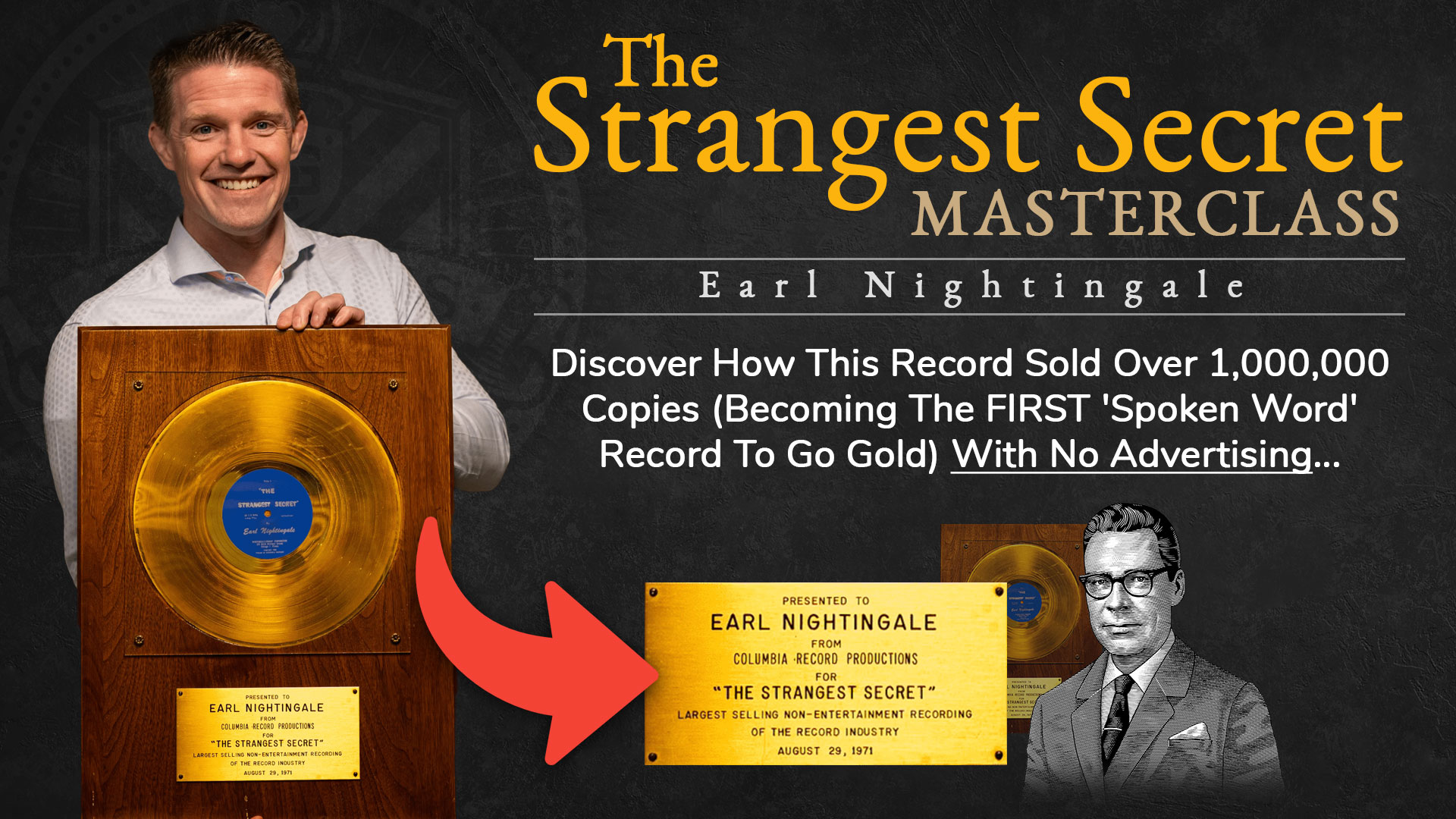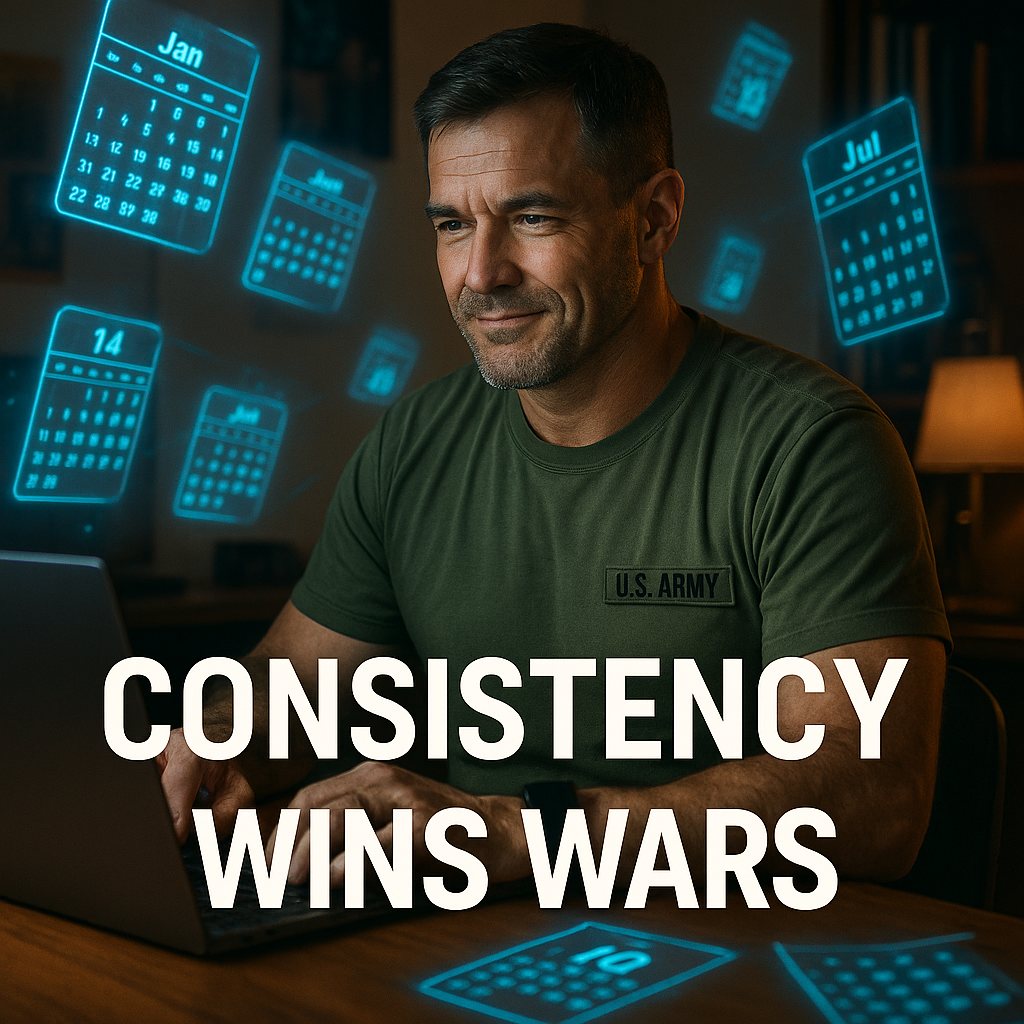Let me be upfront: I never planned to spend a Saturday morning rubbing virtual elbows with entrepreneurial legends like Russell Brunson or parsing through 'lost mini-books' promising me the world (or at least a more abundant mindset). Yet something about stumbling across the 'Secrets of Success Masterclass'—maybe it was the story of the first 'spoken word' record to go gold without any advertising, maybe just pandemic boredom—nudged me to register. The experience that unfolded was not what I had anticipated; it was a blend of inspiration, skepticism, and a surprising amount of self-discovery. Here’s how it all unfolded, imperfections and insights included.
Stumbling Upon Success: The Allure of Lost Books and Viral Masterclasses
It was one of those nights when sleep felt impossible, and my phone was an extension of my hand. You're probably familiar with the routine—constantly browsing through feeds and navigating between various topics. That's when I stumbled across something that made me pause mid-scroll: a registration page promising exclusive access to 14 unpublished "mini-books" called "How To Get Anything You Want."
Now, I'll be honest. In our age of information overload, where everyone's selling the "next big thing," I should have been skeptical. But there was something different about this Secrets of Success Masterclass that caught my attention. Maybe it was the phrase "never before released" that got me, or perhaps it was that nagging voice in my head whispering, "What if this product is actually the missing piece?"
The Gold Record That Started It All
The backstory hooked me completely. This whole thing traces back to Earl Nightingale's "The Strangest Secret"—a spoken-word record that sold over 1,000,000 copies and became the first of its kind to go gold. Without any advertising. Think about that for a second. In an era before social media, before viral marketing, this message spread purely through word of mouth and genuine impact.
The connection felt almost mystical. Here was this lost treasure—14 mini-books that were supposedly only distributed at exclusive self-development events, never mass-produced or widely available. Russell Brunson had invested over $30,000 in acquiring the first edition set.
The Comfort of "Maybe This Time"
There's this odd comfort that comes with thinking you've finally found the thing—the secret that's been hiding in plain sight while you've been struggling with your abundance mindset and personal growth journey. Even though my rational brain knew better, part of me couldn't help but wonder: what if these lost books contained insights that could actually shift something fundamental?
The appeal wasn't just about the content itself. It was about exclusivity, about being part of something rare. Research shows that limited-time access to transformative material creates a powerful psychological pull, especially in the self-development space where people are actively seeking breakthroughs.
The Dream Team of Speakers
The lineup of guest speakers truly made the difference. This wasn't some random collection of motivational speakers—each brought serious credentials and diverse backgrounds that enhanced the Success Masterclass appeal.
Russell Brunson, known as the "funnel guy," boasts over 20 years of experience in online marketing and is the co-founder of ClickFunnels. Eileen Wilder transitioned from being a pastor with modest means to earning more in a single day than she previously made in an entire year. Joe Vitale, with 35+ years of manifestation training and a library of self-development books. Annie Grace has helped thousands of people break free from alcohol addiction by using psychological mindset shifts.
"Opportunities are never lost; they are just found by someone else." – Russell Brunson
Each speaker represented a different angle on success—entrepreneurship, spirituality, manifestation, and addiction recovery. It felt comprehensive, like they'd assembled a panel that could address whatever roadblock you were facing in your personal growth journey.
The live engagement aspect added another layer of appeal. This wasn't going to be some pre-recorded webinar where you passively consume content. It was positioned as an interactive experience where breakthroughs and mental mastery could happen in real-time.
So there I was, finger hovering over the registration button, caught between skepticism and hope. The logical side of my mind persistently raised concerns about unrealistic promises. But the dreamer in me? She was already imagining what those 14 mini-books might reveal about getting anything you want in life.
The Mindset Shift Nobody Warns You About (And My Attempts at Mental Mastery)
Here's what they don't tell you about mindset shifts: they're awkward as hell when you first start. The masterclass made it sound so easy—just flip a mental switch and boom, abundance mindset activated. However, when I actually tried to implement the daily exercises that were discussed, I experienced a different reality.
Take my gratitude journal experiment. Every morning, I'd sit there with my coffee, trying to write three things I was grateful for. This seems straightforward, doesn't it? Day one: "I'm grateful for my health, my family, and... uh... coffee?" By day three, I had reached my lowest point: "I'm thankful that my neighbor's dog only barks for twenty minutes instead of an hour." The mental mastery they promised felt more like mental gymnastics.
Then there were the morning affirmations. I stood in front of my bathroom mirror at 6 AM, telling myself, "I am abundant and successful," even though my reflection clearly revealed someone wearing yesterday's t-shirt with bedhead. The gap between the words and my reality felt... massive.
When Real Life Crashes Your Vision Board
The abundance mindset really got tested when my cat, Mr. Whiskers, decided my carefully crafted vision board made an excellent launching pad. Picture this: I'm all zen, visualizing my goals, when suddenly my "dream house" photo is covered in cat hair and my "financial freedom" sticky note is stuck to his paw. If that's not the universe testing your commitment to personal growth, I don't know what is.
These moments made me question everything. How do you maintain an abundance mindset when your actual abundance consists of seventeen cents in your checking account and a fridge containing only condiments?
3 AM Reality Checks
Mental mastery sounds impressive until you're lying awake at 3 AM after a sales call went sideways. That's when all those positive affirmations feel like they're mocking you from across the room. The masterclass covered mental attitudes employed by successful individuals across various industries, but how do those of us still learning apply them?
Those late-night moments were brutal. All the self-development principles I'd learned during the day seemed to evaporate in the dark. "Every act you have ever performed since the day you were born was performed because you wanted something," Dale Carnegie said—but what happens when what you want feels impossibly out of reach?
The Subtle Shifts I Almost Missed
But here's the weird thing: even when my outer life looked exactly the same, something was shifting internally. I started catching myself before spiraling into victim mode. When someone cut me off in traffic, instead of immediately getting angry, I'd think, "Maybe they're having a rough day." The changes were subtle, almost imperceptible.
The mindset shifts weren't dramatic movie moments—they were quiet course corrections. I stopped presuming the worst in situations. I also started to notice opportunities that I would have previously overlooked.
The Wild Card: Great Minds Group Chat
Sometimes I imagine what a group text between all the great self-improvement thinkers would look like. Earl Nightingale drops his "strangest secret" wisdom, Napoleon Hill responds with "That's cute, but have you tried thinking and growing rich?" and Dale Carnegie just sends motivational GIFs. Russell Brunson would likely attempt to sell each of them a marketing funnel.
The reality of pursuing personal growth isn't as clean as the masterclass presentations suggest. It's messy, inconsistent, and full of moments where you question if you're just fooling yourself. But maybe that's precisely what makes it real.
Decoding the Hype: What Happens When Success Gets Packaged and Sold?
Okay, let me paint you a picture of what I walked into. The Success Masterclass wasn't just a webinar—it was a full-blown production. Russell Brunson's face filled my screen at exactly 9 AM Pacific, and within minutes, the chat window exploded with comments. "This is life-changing!" "I've been waiting for this!" "Finally, someone who gets it!"
The structure was slick, I'll give them that. Live demos flowed seamlessly into Q&A sessions, and every few minutes, Russell would pause to acknowledge the flood of enthusiasm streaming through the chat. It felt like being part of something bigger—which, let's be honest, was exactly the point.
The Challenge Format: Genius or Manipulation?
Here's where things got interesting. This wasn't just a one-off masterclass—it was a 3-day challenge. And you know what? The challenge format works. Research shows that challenge formats foster accountability and ongoing participation, and I could see it happening in real-time.
The psychology is brilliant, really. Day one hooks you with the promise of transformation. Day two builds momentum with "homework" assignments. By day three, you're invested—emotionally and time-wise. There's accountability built right in, plus that little whisper of FOMO when they mention "limited-time access."
The community aspect kicked in almost immediately. People were sharing their breakthroughs, their struggles, their "aha moments" in the chat. It wasn't just about personal growth anymore—it was about belonging to something exclusive.
The Business Savvy Behind "Free"
Let's talk about the elephant in the room. This masterclass was free, but nothing's really free, right? The business model became crystal clear as the days progressed. Offer genuine value upfront, build trust, create community, then present the inevitable upgrade.
What surprised me was how transparent they were about it. Russell didn't hide the fact that this was leading somewhere. "We're going to share some incredible insights from these rare mini-books," he'd say, "and if you want to dive deeper..." There it was—the hook, delivered with surprising sincerity.
The replay strategy was particularly clever. Missing the live session? No problem—replay links arrive within 24-48 hours. This kept people engaged even when life got in the way, maintaining that crucial momentum for the eventual pitch.
Unscripted Gold and the Inevitable Pitch
Here's something that caught me off guard: some of the most valuable content came during the unplanned moments. When Russell went off-script to answer a random chat question, or when he shared a personal story that wasn't part of the slide deck—that's when the real growth strategies emerged.
These asides felt more authentic than the polished presentation. Maybe that was intentional too, but it created this sense of getting insider access to his actual thought process.
Then came the infomercial moment. You know it's coming—the transition from education to sales. But here's what struck me: it didn't feel slimy. The pitch for the "Secrets of Success" community and those rare manuscripts felt like a natural extension of everything we'd just learned.
'Transformation is a process, and as life happens there are tons of ups and downs. It's a journey of discovery.' – Rick Warren
The masterclass format combines live engagement with follow-up access, creating an ongoing community that extends far beyond those initial three days. It's self-development meets smart marketing, and honestly? It works because it delivers value before asking for anything in return.
Was I skeptical going in? Absolutely. Did I find myself genuinely engaged by the end? That's the million-dollar question, isn't it?
Wait—Isn't This Just Another Sales Pitch? Wrestling with Skepticism and Surprises
Let me be honest—when I first saw Russell Brunson's polished registration page promising "newly discovered" mini-books and life-altering personal growth secrets, my internal skeptic went full alert. The landing page had all the hallmarks of classic internet marketing: countdown timers, "limited time" offers, and those testimonials that feel almost too perfect. I mean, come on—rare manuscripts that were "never published" suddenly appearing after someone invested "$30K+" to acquire them? It sounded like the setup to every wealth creation pitch I'd ever encountered.
But here's the thing that kept nagging at me: how much of this "secret knowledge" was actually just rebranding of classic wisdom? I've been down the self-development rabbit hole before, and I know how easy it is to package age-old principles as revolutionary discoveries. Earl Nightingale's "The Strangest Secret" isn't exactly... well, secret anymore. It's been around since the 1950s.
Yet something about the physical element caught my attention. The promise of actual books—not just digital downloads—shipping in 4-6 weeks outside the US felt different. There's something almost magical about holding rare manuscripts, isn't there? It taps into our deep craving for significance, for being part of something exclusive. Research shows that membership perks like rare works and physical books create a sense of collector value that goes beyond the content itself.
The Moment That Changed Everything
Then came the surprise that completely blindsided me. During one segment focused on overcoming envy and scarcity thinking, I felt like Russell was speaking directly to me. Not in that generic "this could apply to anyone" way, but in a way that made me pause mid-sip of my coffee and think, "Wait, how did he know?"
He talked about how we often resent others' success while simultaneously craving it for ourselves. How we operate on "auto-pilot" with broken mindsets, dealing with feelings of jealousy and building up resentment. The way he described the shift from scarcity to abundance mindset wasn't just theory—it felt personal. Uncomfortably personal.
'Wealth consists not in having great possessions, but in having few wants.' – Epictetus
This ancient wisdom, woven into the modern presentation, suddenly made the whole "rebranding classic wisdom" concern feel less relevant. Maybe the real value isn't in discovering something completely new, but in finding fresh ways to internalize timeless life principles.
Finding Community in Shared Struggles
What really got to me, though, was the chat during the live session. People were being surprisingly honest about still feeling stuck, despite consuming countless hours of self-development content. One person wrote, "I've read all the books but I'm still here at 2 AM wondering what I'm doing wrong." Another admitted, "Sometimes I feel like I'm collecting courses instead of actually changing."
Me too, sometimes. The community interaction became central to the experience in ways I hadn't expected. It wasn't just about master salesmanship or slick presentation—it was about recognizing that personal transformation is messy, nonlinear, and often lonely. Having a space where people admitted their struggles openly felt... refreshing? Revolutionary, even.
The dashboard promises and token systems for unlocking rare works suddenly seemed less like marketing gimmicks and more like thoughtful ways to make self-development a shared journey rather than a solitary struggle. Maybe that's the real secret—not the content itself, but the community experience wrapped around it.
What Actually Stuck: Weird Takeaways, Small Victories, and the More Subtle Secrets
Here's the thing about personal growth that nobody really tells you upfront—it's messy, unpredictable, and most of the time, the biggest breakthroughs come disguised as tiny, almost boring shifts that happen when you're not even paying attention. After diving deep into Russell Brunson's masterclass and those mysterious 14 mini-books, I expected some grand revelation. You know, the kind where lightning strikes and suddenly you're a completely transformed person with perfect habits and unwavering confidence. Instead, what I got was... different. Better, actually, but in ways I didn't see coming.
The Quiet Revolution in My Daily Routine
The most unexpected gain? My morning routine completely transformed. Not because someone told me to wake up at 5 AM and meditate for an hour, but because I started viewing each morning as a fresh chance to practice what Annie Grace calls the collection of small moments. "Success is not a one-time event. It's a collection of hours, days, and habits, all bundled together," she said during one of the sessions, and that quote is now permanently stuck to my bathroom mirror. My workspace tells the story better than I can. Sticky notes everywhere—some with profound insights from the mini-books, others with reminders I wrote to myself at 2 AM after particularly inspiring sessions. Half-written affirmations fill a folder on my computer. It looks chaotic, but it feels like progress.
Success as a Daily Curveball
The biggest mindset shift wasn't about achieving more—it was about redefining what success actually means. Instead of treating it like some distant finish line I needed to sprint toward, I started seeing it as this ongoing, unpredictable dance. Some days you nail it, other days you trip over your own feet, and both are perfectly valid parts of the journey. This approach to self-development feels more sustainable than anything I've tried before. Research shows that personal routines and small changes create lasting impact, often more than those dramatic overhauls we're always chasing. I'm living proof of that now.
The Beautiful Messiness of Growth Strategies
What really stuck wasn't the flashy techniques or the secret formulas. It was the simple realization that I wasn't alone in this weird, winding path of trying to become better. The masterclass community, the shared struggles, the collective "aha" moments—that connection became fuel for continuing when motivation ran low. My journal from those weeks looks like a conversation with myself. Half the entries are excited breakthroughs, the other half are me wondering if I'm making any real progress. Turns out, both types of entries were necessary. The slow burn of trying, failing, and trying again taught me more about resilience than any motivational speech ever could.
Old Wisdom Meets Modern Chaos
Here's a wild thought that keeps me up occasionally: What would Earl Nightingale think if he could see us now, absorbing life principles through Zoom calls and productivity apps? Would these classic self-help pioneers be amused by our digital sticky notes and smartphone reminders, or horrified that we've complicated something they saw as beautifully simple? I like to think they'd be fascinated. The core message hasn't changed—mindset shifts still create real transformation—but the delivery has evolved with us. Looking back, the strangest secret wasn't hidden in those rare mini-books at all. It was discovering that personal growth isn't about perfecting yourself; it's about staying curious, staying connected, and showing up consistently, even when—especially when—you don't feel like it. The sticky notes are still there, my journal's still messy, and I'm still figuring things out. But now I know that's exactly where I'm supposed to be.



